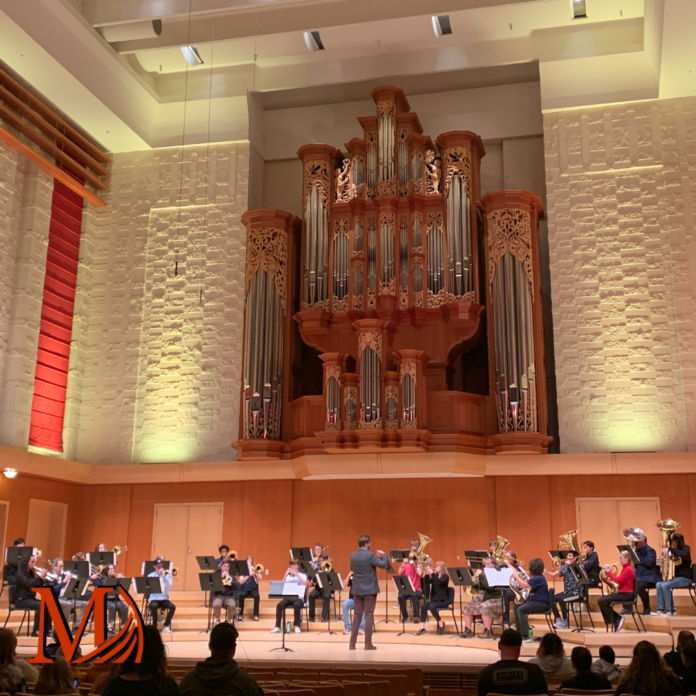On Saturday, November 11th, Pacific Lutheran University hosted the PLU High School Brass Workshop and Faculty Concert. The event, hosted in Lagerquist Concert Hall, combined both faculty and high school student performers who played four pieces in total.
The workshop provides local high school students with the opportunity to enhance their brass technique by learning from PLU faculty members. Zachary Lyman, a trumpet professor at PLU states that, “we wanted to do this as a way to just get high school brass players to our campus so they can see what it’s really like to be a brass player here and just meet the faculty.” The workshop has many benefits, including getting specialized training with faculty, an hour of community building time with current PLU music students, and the opportunity to perform for the community at the end of the workshop.“The timing is intentional too, because we have our scholarship audition weekend in February every year, so we like to do this ahead of that to get people interested in PLU and then they can take the audition in February if they want to,” said Lyman.
This event has been put on for many years, but due to the COVID-19 pandemic it took a hiatus. The temporary pause caused the brass workshop event to experience budget cuts and to lose participants. “Initially, we had the funding to hire a guest artist. So initially we would have the PLU faculty and then … a big shot, outside-of-PLU-person to come in and … inspire everybody,” Lyman says. “…[T]he funding for that…went away after COVID and now we are the guest artists, we just do it all ourselves.” This year, the faculty artists for the workshop consisted of Zachary Lyman and Devin Bianchi-Rivera (trumpet), Gine Gille (horn), Ryan Wagner (trombone), and Paul Evans (tuba).
In addition to budget cuts within the workshop program itself, the number of participants has dropped significantly since pre-pandemic; as with many other arts programs, getting participants for these events has been a bit of a struggle. Although the numbers have dipped, Lyman is hopeful for a more robust program in the future. “We’re starting to see ‘okay, we’re going to make it.’ It’s really nice.”


















